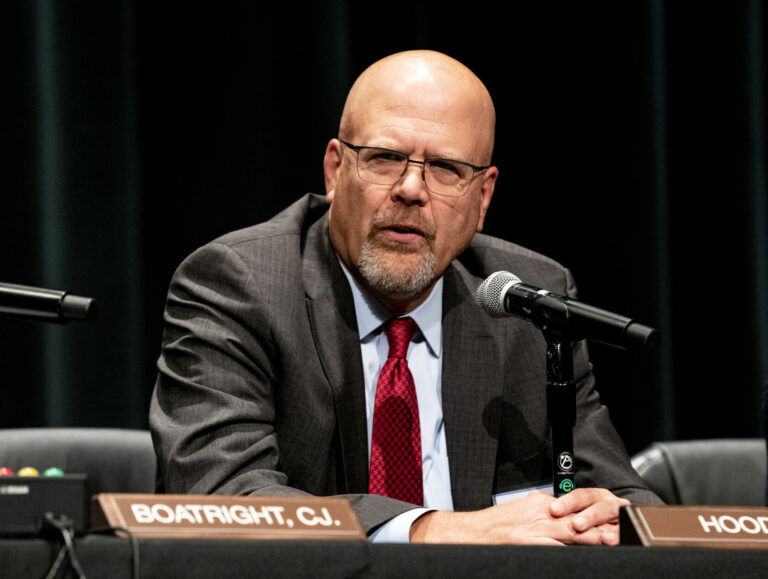Judge declines to block Fort Collins-based Semester at Sea program from kicking man off ship

A federal judge declined to intervene last week and order the Fort Collins-based Semester at Sea program to keep a student on its ship, less than 24 hours before he was scheduled to be ejected in Cyprus.
The unusual request landed before U.S. District Court Judge Nina Y. Wang on Feb. 23, with Samuel Wells asking for a temporary restraining order to prevent Semester at Sea from removing him from the study abroad ship on Feb. 24 before it left port in the Mediterranean Sea. The program, which operates in conjunction with Colorado State University, had deemed Wells responsible for misconduct, while Wells insisted he was railroaded through the investigation.
Wang quickly concluded Wells did not qualify for a temporary restraining order because he appeared unlikely to succeed on his underlying legal claims of defamation and breach of contract. Problematically, Wang could not tell which jurisdiction’s laws applied to Wells’ case.
“(A)bsent any argument from Plaintiff, and the undisputed fact that the incident in question occurred outside of the United States, the Court is unable to determine the applicable law with respect to Plaintiff’s breach of contract claim, so as to determine whether there is a likelihood of success on his breach of contract claim, let alone any enforceable contract,” she wrote.
Attorneys for Wells and for Semester at Sea, formally known as the Institute for Shipboard Education, did not immediately respond to questions about where Wells is currently and whether he returned to the United States on his own.
According to the underlying lawsuit, Wells, of Wisconsin, paid nearly $50,000 to enroll in Semester at Sea for the spring of 2023. On Feb. 12, the ship was at port in Jordan and students had spent the day visiting the host city. When Wells returned to the ship, security believed him intoxicated and placed him in an observation room. Wells alleged the practice of holding students for observation was a “regular source of conflict” between program participants and security staff.
Five days later, administrator Jenni Schreiner emailed Wells announcing a “conference” the next day to discuss four alleged conduct violations: misuse of alcohol, abusive behavior, disruptive behavior and failure to comply with directions.
On Feb. 18, after the conference, Schreiner wrote to Wells with her decision.
“When we met you admitted that, as a result of alcohol use and nicotine withdrawal, you mistreated and spoke inappropriately to several members of the SAS staff, ship security team, and medical staff. While you don’t remember every interaction, we discussed that your actions were verbally abusive,” she explained.
Schreiner noted Wells had 48 hours to appeal. Otherwise, his transcript would contain the notation of “Dismissal – Conduct.” He would also need to leave the ship by Feb. 24, when it was scheduled to depart Cyprus.
The day before the departure, Wells filed suit against Semester at Sea. He had not committed a crime, threatened anyone or interfered with ship operations, his attorney wrote. Although the handbook specifies that the “formal rules” of the justice system do not apply to misconduct investigations, students accused of misconduct do receive a hearing. Schreiner did not advertise their meeting as a “hearing,” Wells pointed out, and the word “conference” does not appear in the handbook’s procedures.
“Had Plaintiff been informed of a Hearing,” wrote attorney Nathan K. Davis, “it would have triggered certain contractual rights under the Handbook, including the rights to know the charges made against him and to call witnesses and have a support person with him throughout the Hearing process.”
Alleging the lack of a fair hearing or a meaningful opportunity to appeal, Wells asked Wang to bar Semester at Sea from removing him. He also sought to block the program from taking disciplinary action that would interfere with his academic enrollment, and prevent the program from “publishing or making any statements” about Wells’ misconduct – which would amount to defamation, in Wells’ view.
Lawyers for the Institute for Shipboard Education responded that Wells’ academic injuries were hypothetical, and the program had an interest in maintaining order on its ship.
“If ISE is forced to keep Plaintiff onboard the vessel in spite of disorderly conduct, this would be disruptive to the administering of ISE’s programs, it would require the diversion of resources to security, and it may also jeopardize the safety of the entire on-board population of the ISE vessel,” the attorneys argued.
Wang sided with the program, believing Wells had not identified any contract Semester at Sea had allegedly breached. Further, Schreiner had given him notice of the charges against him and an opportunity to respond through their conference. As for the defamation claim, Wang did not find any “extraordinary circumstances” that should prohibit CSU from publishing Wells’ dismissal for conduct in its transcript.
A hearing is scheduled in the case for April 5, at which Wang will consider whether to grant Wells a preliminary injunction while the lawsuit unfolds.
The case is Wells v. Institute For Shipboard Education.
Editor’s note: This article has been updated to correct the spelling for the island of Cyprus.














